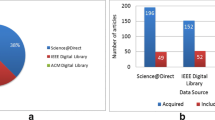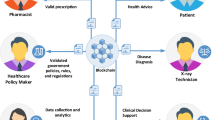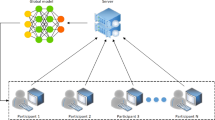Abstract
Federated learning (FL) enables learning a model from data distributed across numerous workers while preserving data privacy. However, the classical FL technique is designed for Web2 applications where participants are trusted to produce correct computation results. Moreover, classical FL workers are assumed to voluntarily contribute their computational resources and have the same learning speed. Therefore, the classical FL technique is not applicable to Web3 applications, where participants are untrusted and self-interested players with potentially malicious behaviors and heterogeneous learning speeds. This paper proposes Refiner, a novel blockchain-powered decentralized FL system for Web3 applications. Refiner addresses the challenges introduced by Web3 participants by extending the classical FL technique with three interoperative extensions: (1) an incentive scheme for attracting self-interested participants, (2) a two-stage audit scheme for preventing malicious behavior, and (3) an incentive-aware semi-synchronous learning scheme for handling heterogeneous workers. We provide theoretical analyses of the security and efficiency of Refiner. Extensive experimental results on the CIFAR-10 and Shakespeare datasets confirm the effectiveness, security, and efficiency of Refiner.




















Similar content being viewed by others
References
Bagdasaryan, E., Veit, A., Hua, Y., Estrin, D., Shmatikov, V.: How to backdoor federated learning. In: AISTATS, vol. 108, pp. 2938–2948 (2020)
Bhagoji, A.N., Chakraborty, S., Mittal, P., Calo, S.: Analyzing federated learning through an adversarial lens. In: ICML, vol. 97, pp. 634–643 (2019)
Blanchard, P., Mhamdi, E.M.E., Guerraoui, R., Stainer, J.: Machine learning with adversaries: Byzantine tolerant gradient descent. In: NeurIPS (2017)
Buterin, V.: A next-generation smart contract and decentralized application platform (2014)
Caldas, S., Wu, P., Li, T., Konecný, J., McMahan, H.B., Smith, V., Talwalkar, A.: LEAF: a benchmark for federated settings. In: NeurIPS Workshop (2019)
Cao, L.: Decentralized AI: edge intelligence and smart blockchain, metaverse, Web3, and DeSci. IEEE Intell. Syst. 37, 6–19 (2022)
Desai, H.B., Ozdayi, M.S., Kantarcioglu, M.: BlockFLA: Accountable federated learning via hybrid blockchain architecture. In: CODASPY (2021)
Dirir, A.M., Salah, K., Svetinovic, D., Jayaraman, R., Yaqoob, I., Kanhere, S.S.: Blockchain-based decentralized federated learning. In: BCCA pp. 99–106 (2022)
Fan, S., Zhang, H., Wang, Z., Cai, W.: Mobile devices strategies in blockchain-based federated learning: a dynamic game perspective. In: IEEE TNSE, pp. 1–13 (2022)
Fan, S., Zhang, H., Zeng, Y., Cai, W.: Hybrid blockchain-based resource trading system for federated learning in edge computing. IOT 8, 2252–2264 (2021)
Feng, L., Zhao, Y., Guo, S., Qiu, X., Li, W., Peng, Y.: BAFL: a blockchain-based asynchronous federated learning framework. IEEE Trans. Comput. 71, 1092–1103 (2022)
Gilad, Y., Hemo, R., Micali, S., Vlachos, G., Zeldovich, N.: Algorand: scaling byzantine agreements for cryptocurrencies. In: SOSP, pp. 51–68 (2017)
Issa, W., Moustafa, N., Turnbull, B.P., Sohrabi, N., Tari, Z.: Blockchain-based federated learning for securing internet of things: a comprehensive survey. ACM Comput. Surv. 1–37 (2022)
Karimireddy, S.P., Kale, S., Mohri, M., Reddi, S.J., Stich, S.U., Suresh, A.T.: Scaffold: stochastic controlled averaging for federated learning. In: ICML (2020)
Kim, H., Park, J., Bennis, M., Kim, S.L.: Blockchained on-device federated learning. IEEE Commun. Lett. 24, 1279–1283 (2020)
Krizhevsky, A.: Learning multiple layers of features from tiny images. Technical Report, pp. 1–60 (2009)
Li, T., Hu, S., Beirami, A., Smith, V.: Ditto: Fair and robust federated learning through personalization. In: ICML (2021)
Li, T., Sahu, A.K., Zaheer, M., Sanjabi, M., Talwalkar, A., Smith, V.: Federated optimization in heterogeneous networks. In: MLSys, vol. 2, pp. 429–450 (2020)
Li, Y., Chen, C., Liu, N., Huang, H., Zheng, Z., Yan, Q.: A blockchain-based decentralized federated learning framework with committee consensus. IEEE Netw. 35, 234–241 (2021)
Liu, Y., Qu, Y., Xu, C., Hao, Z., Gu, B.: Blockchain-enabled asynchronous federated learning in edge computing. Sensors 21, 1–16 (2021)
Lu, Y., Tang, Q., Wang, G.: On enabling machine learning tasks atop public blockchains: a crowdsourcing approach. In: ICDMW, pp. 81–88 (2018)
Ma, J., Naas, S.A., Sigg, S., Lyu, X.: Privacy-preserving federated learning based on multi-key homomorphic encryption. IJIS 37, 5880–5901 (2021)
Malewicz, G., Austern, M.H., Bik, A.J.C., Dehnert, J.C., Horn, I., Leiser, N., Czajkowski, G.: Pregel: a system for large-scale graph processing. In: SIGMOD (2010)
McMahan, H.B., Moore, E., Ramage, D., Hampson, S., y Arcas, B.A.: Communication-efficient learning of deep networks from decentralized data. In: AISTATS, vol. 54, pp. 1273–1282 (2017)
Micali, S., Rabin, M., Vadhan, S.: Verifiable random functions. In: FOCS, pp. 120–130 (1999)
Ming, W.Y., Hao, L.G., Yu, F.L., Mao, P.: Research on block chain defense against malicious attack in federated learning. In: ICBCT (2021)
Moudoud, H., Cherkaoui, S., Khoukhi, L.: Towards a secure and reliable federated learning using blockchain. In: IEEE GLOBECOM, pp. 1–6 (2021)
Mugunthan, V., Rahman, R., Kagal, L.: Blockflow: Decentralized, privacy-preserving, and accountable federated machine learning. BLOCKCHAIN 320 (2021)
Nakamoto, S.: Bitcoin: a peer-to-peer electronic cash system (2008)
Nelaturu, K., Beillahi, S.M., Long, F., Veneris, A.G.: Smart contracts refinement for gas optimization. In: BRAINS, pp. 229–236 (2021)
Nguyen, Q.T., Do, B.S., Nguyen, T.T., Do, B.L.: GasSaver: a tool for solidity smart contract optimization. In: ACM BSCI (2022)
OpenAI’s GPT-3: a technical overview. https://lambdalabs.com/blog/demystifying-gpt-3
Park, J., Lim, H.K.: Privacy-preserving federated learning using homomorphic encryption. Appl. Sci. (2022)
Ramanan, P., Nakayama, K., Sharma, R.K.: Baffle: blockchain based aggregator free federated learning. In: IEEE Blockchain, pp. 72–81 (2020)
Saldanha, O.L., Quirke, P., West, N.P., Jacqueline, A., James, E.: Swarm learning for decentralized artificial intelligence in cancer histopathology. Nat. Med. 28, 1232–1239 (2021)
Shorten, C., Khoshgoftaar, T.: A survey on image data augmentation for deep learning. J. Big Data 6, 1–48 (2019)
Sprague, M.R., Jalalirad, A., Scavuzzo, M., Capota, C., Neun, M., Do, L., Kopp, M.: Asynchronous federated learning for geospatial applications. In: ECML PKDD, pp. 21–28 (2019)
Wang, H., Yurochkin, M., Sun, Y., Papailiopoulos, D., Khazaeni, Y.: Federated learning with matched averaging. In: ICLR (2020)
Warnat-Herresthal, S., Schultze, H., Shastry, K., Sathyanarayanan Manamohan, E.: Swarm learning for decentralized and confidential clinical machine learning. Nature 594, 265–270 (2021)
Web2 v.s. Web3: What’s the difference? https://www.algorand.foundation/news/web2-vs-web3
Web3’s most accurate gas fee prediction. https://www.blocknative.com/gas-estimator
Weng, J., Weng, J., Zhang, J., Li, M., Zhang, Y., Luo, W.: Deepchain: auditable and privacy-preserving deep learning with blockchain-based incentive. TDSC 18(5), 2438–2455 (2021)
Wood, G.: Ethereum: a secure decentralised generalised transaction ledger. Ethereum Proj. Yellow Pap. 151, 1–32 (2014)
Xie, C., Koyejo, O., Gupta, I.: Asynchronous federated optimization. In: OPT (2019)
Xu, C., Qu, Y., Eklund, P.W., Xiang, Y., Gao, L.: BAFL: an efficient blockchain-based asynchronous federated learning framework. In: ISCC, pp. 1–6 (2021)
Byzantine-robust distributed learning: Yin, D., Chen, Y., Kannan, R., Bartlett, P. Towards optimal statistical rates. In: ICML, vol. 80, pp. 5650–5659 (2018)
Yuan, S., Cao, B., Peng, M., Sun, Y.: ChainsFL: blockchain-driven federated learning from design to realization. In: IEEE WCNC, pp. 1–6 (2021)
Zhang, Z., Dong, D., Ma, Y., Ying, Y., Jiang, D., Chen, K., Shou, L.: Refiner: a reliable incentive-driven federated learning system powered by blockchain. PVLDB 14, 2659–2662 (2021)
Acknowledgements
This work was funded by National Key Research and Development Project (Grant No: 2022YFB2703100).
Author information
Authors and Affiliations
Corresponding author
Additional information
Publisher's Note
Springer Nature remains neutral with regard to jurisdictional claims in published maps and institutional affiliations.
Rights and permissions
Springer Nature or its licensor (e.g. a society or other partner) holds exclusive rights to this article under a publishing agreement with the author(s) or other rightsholder(s); author self-archiving of the accepted manuscript version of this article is solely governed by the terms of such publishing agreement and applicable law.
About this article
Cite this article
Lin, H., Chen, K., Jiang, D. et al. Refiner: a reliable and efficient incentive-driven federated learning system powered by blockchain. The VLDB Journal 33, 807–831 (2024). https://doi.org/10.1007/s00778-024-00839-y
Received:
Revised:
Accepted:
Published:
Issue Date:
DOI: https://doi.org/10.1007/s00778-024-00839-y




